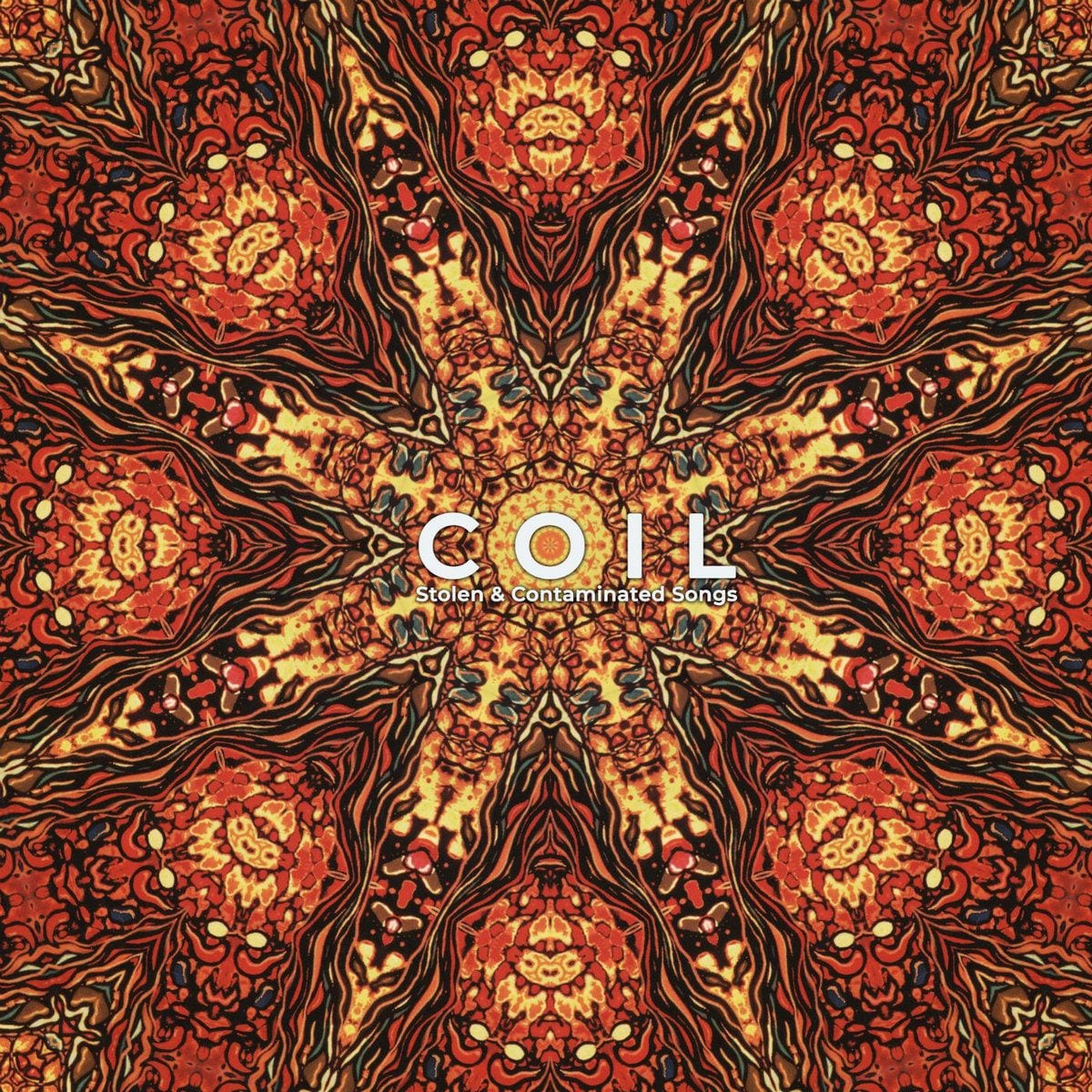
Upon re-reading unimpeachably great novelist Cormac McCarthy one is on occasion taken by the idea that all of this biblical prose is a little too much, perhaps a little silly, and even a touch camp. Anyone who knows McCarthy’s work will be familiar with such high seriousness, and perhaps criticism like this throws his whole aesthetic into sharp relief. I think that the idea of camp gives an opening to this serious band, where perhaps there would otherwise be none, especially given their slightly daunting occultism.
Is such silliness, as on the original mix of “Love’s Secret Domain”, inherent to Coil, or even to industrial music in general? That’s an essay in itself, but if you’re reading this review, and you know Coil, then you’ve maybe made your mind up already. They are the type of band that you “get”, but as someone who apparently does not get them, I can’t help but feel that they are camp without the theatricality and less self-awareness that say, Goth, often carries. If Stolen and Contaminated Songs is aware of its campiness, then it hides it very well. That said, 30 years on, intent is neither here nor there. Some of this collection sounds almost too serious to take seriously, especially in stand-out “Who’ll Fall”, which is a quite lovely ambient track with talk of suicide layered over the top. Such self-seriousness often sounds like it was made for, or even by, alienated teenage boys.
They’re an aesthetic as much as connected artists Nurse with Wound and Current 93 are, and as much as industrial music itself is. It’s in the album’s most industrial points that they most inhabit this campiness, and in the most ambient and cinematic parts that they shed it most. And that’s not to conflate the band’s queerness with their campiness. It would be specious to suggest anything like this. Perhaps then the issue is more to do with what you think of the idea of this band than whether you want to buy this reissue based on its merits as an album per se.
So maybe the question of whether you’ll like this collection of out-takes and alternate versions from Love’s Secret Domain will rest upon a) whether you already know it and think that the notion of the band’s camp-value is wrong, or b) whether you want to get into this band by buying this reissue and are not put off by what I have said about it. But this is not to be overwhelmingly negative about the band, or this record; its sonic qualities are obvious precursors to those of bands like Liars, and tracks like “Inkling” wouldn’t sound out of place on Kid A.
With its snatches of movie dialogue and performative use of samples, this post-industrial collection sounds unmistakably like the early 1990s, which in a way contributes to both its mild silliness and even quaintness. That’s not to say that the band don’t dabble in absurdism. “Omlagus Garfungiloops”, with its “exploding frogs again” sample, taken from The Reflecting Skin, comes off like a noir soundtrack created by aliens, and the album is on occasion quite arch in attitude.
If you’re able to take all this seriously, as it may be assumed most of the band’s fans do, then that’s all to the good, and maybe its over-egged self-seriousness just feels right. But if you’re not, and you take a little Susan Sontag to go with it, then it’s a record that can yield a number of dirty pleasures, and as a companion to its parent album, it’s indispensable.

